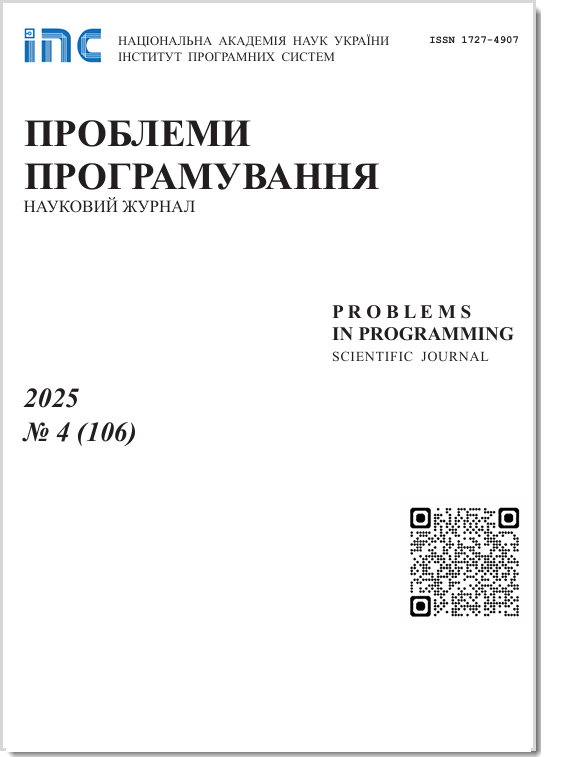Identification of the native language of a person
Abstract
With the great increase of population movement, caused either by temporarily needs due to travelling or by long-term ones due to work, etc., there appears a need to improve the processes of movement control and identification of groups of people. The primary need is to identify if a person belongs to a certain nationality or territory of primary residence. In addition, it can be useful for scientific social and political researches, as well as for the field of tourism and entertainment. Such identification of people by language environment can also help to find out more about the cultural environment, which will make possible to predict the preferences of entire groups of customers better.
The analysis of the audio recording of the speaker’s speech was divided into 3 stages, each of which contains a defined step-by-step instruction for the processes of data preparation and handling. Firstly, the sound itself was analyzed, because voice and pronunciation are one of the fastest and most effective tools for identifying a person or a group of people. Then the audio recording was converted into text and an analysis of the lexical composition of the studied fragment of the conversation was done. At the end, the results of the program, got in the previous two stages, were compared and the complex evaluations were done according to the criterias determined in the theoretical researches. The mentioned criterias were used with weighting factors assigned to them. As a result, an assumption about the speech environment of the speaker was given by the program.
The work also describes the factors which affects the formation of pronunciation and the change of various intonations, the relationship between text and sound. Some dependencies between sound parameters and the pronunciation of sounds in the Russian and Ukrainian languages were mathematically formalized.
The topic of the work is wide, as it considers not only lexical, but also acoustic features of speech. In this way, not only changeable or situational qualities are taken into account, for example, the vocabulary of the conversation, but also those ones that are related to the person regardless of the context of the conversation, his or her emotional state or what language he or she is speaking at the very moment. The criterias considered in the work can help to make assumptions about the speaker’s «natural», most familiar language, in other words the language he or she uses most of the time in life.
Prombles in programming 2022; 3-4: 271-280
Keywords
Full Text:
PDF (Українська)References
M.V. TKACHENKO, R.M. FEDORENKO, Y.V. KONDRATENKO, I.H. ZOTOVA (2019) Methods of automatic identification of the announcer by voice. Collection of scientific works of the Center for Military and Strategic Studies of the National Defense University of Ukraine named after Ivan Chernyakhovskyi. (3) P. 131-135. (in Ukrainian)
Official website of NUANCE COMMUNICATIONS INC.: https://www.nuance.com/index.html
Official website of BIOCATCH: https://www.biocatch.com
Y.S.YAMNENKO, O.V.SMIRNOV (2018) Determination of a person’s emotional state based on the analysis of voice characteristics. Master’s thesis: Department of Industrial Electronics, Faculty of Electronics, NTU “ Igor Sikorsky KPI”. 124 p. (in Ukrainian)
A.Y. BAGMUT (1970) The intonation structure of a simple narrative sentence in Slavic languages. Кyiv: Naukova dumka. 173 p. (in Ukrainian)
A.Y. BAGMUT (1980) The structure and functional-semantic aspect of the intonation of a simple narrative sentence in Slavic languages. Academy of Sciences of the USSR Institute of Slavic and Balkan Studies. 48 p. (in Ukrainian)
R.T.MINNIGALIMOV (2015) Analysis and synthesis of Ukrainian speech. Master’s thesis: Department of Radio Design and Radio Equipment of the Radio Engineering Faculty, NTU “ Igor Sikorsky KPI”. 107 p. (in Ukrainian)
L.A. BLYZNYCHENKO (1968) Speech intonation. Кyiv: Naukova dumka. 203 p. (in Ukrainian)
I.R. GLYUK (2019) Study of acoustic features of the integral characteristics of the Ukrainian language. Master’s thesis: Department of Acoustics and Acoustic Electronics of the Faculty of Electronics, NTU "Igor Sikorsky KPI". 91 p. (in Ukrainian)
S. Y. YERMOLENKO (1973) Ukrainian literary pronunciation and accent. Dictionary-reference. Academy of Sciences of the Ukrainian SSR Institute of Linguistics named after O. O. Potebny. Кyiv: Naukova dumka. 724 p. (in Ukrainian)
V.L. SHEVCHENKO,Y.S. LAZORENKO, O.M. BOROVSKA (2021) Intonational expressiveness of the text at program sounding. Scientific magazine “Problems of programming”. (2) P. 76-84. (in Ukrainian) CrossRef
S.V. KNYAZEV, S.K. POZHARYTSKA (2005) Modern Russian literary language. Phonetics, graphics, spelling. Moscow: Academic Project. 426 p. (in Russian)
DOI: https://doi.org/10.15407/pp2022.03-04.271
Refbacks
- There are currently no refbacks.









